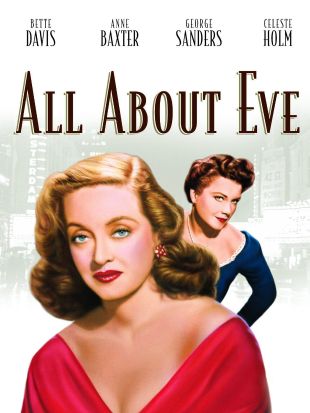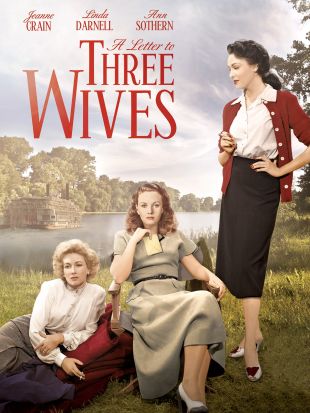Like his older brother Herman J. Mankiewicz, American producer/ director/ writer Joseph Mankiewicz displayed a streak of brilliance from an early age. Before he was 20, the younger Mankiewicz was the assistant Berlin correspondent for the Chicago Tribune and an English translator for the subtitles of German-made films. Brother Herman, already ensconced in Hollywood as a high-priced screenwriter, invited Joseph to try his luck in Tinseltown in 1929.
Mankiewicz's first assignment at Paramount was composing subtitles for the silent versions of the studio's sound pictures. He also concocted special comedy material for Jack Oakie movies, which led to several years of employment on such nonsensical film farces as Bert Wheeler and Robert Woolsey's Diplomaniacs (1933) and W.C. Fields' Million Dollar Legs in 1932. (Fields paid Joseph 50 dollars for the lifetime rights to the phrase "My little chickadee.") Mankiewicz moved to MGM in 1934, where he expressed a desire to direct; MGM head Louis B. Mayer told him "You have to learn to crawl before you can walk," and made him a producer instead. For the next six years, Mankiewicz produced such enduring films as Fury (1936), The Philadelphia Story (1940), and Woman of the Year (1942). Realizing that Mayer would never let him direct, Mankiewicz switched to 20th Century Fox in 1944, where he made his directorial debut with Dragonwyck that same year. His films' scripts during the Fox period were distinguished by a high level of literacy and wit, most notably evidenced in A Letter to Three Wives (1949) and All About Eve (1950), both of which won Mankiewicz Oscars for Best Writer and Best Director. While his cameramen praised his visual sense, however, his directorial style tended to be flat and perfunctory, with dialogue given precedence over staging and characterization. Still, it was superb dialogue, even when there was way too much of it (as in People Will Talk [1952]).
Leaving Fox in 1952 to freelance, Mankiewicz directed one of the all-time best Shakespeare films for MGM, 1953's Julius Caesar, its appeal heightened by the offbeat (and effective) casting of Marlon Brando as Antony and Edmond O'Brien as Casca. The Barefoot Contessa the following year contained all the virtues and vices of the Mankiewicz's technique: on the plus side, a complex, involved story and memorably etched individual characters; on the minus side, an excessive running time, interminable dialogue sequences, and too many arbitrarily inserted author's messages. (Was a three-minute diatribe about greedy oil companies really necessary in the middle of a romantic drama?) Curiously, when Mankiewicz had an opportunity to make a truly volatile political statement in The Quiet American (1958), he muffed it by totally altering the message and the denouement of Graham Greene's original novel. Willing to tackle any subject matter, the director made the 1955 film version of Guys and Dolls and tried valiantly to bring coherence to the troubled 1963 version of Cleopatra with Elizabeth Taylor. After that debacle, Mankiewicz's movies became fewer and extremely uneven in quality. He was back in the groove with his last film, however: Sleuth (1972), a marvelous cat-and-mouse affair starring Laurence Olivier and Michael Caine.
The recipient of dozens of industry awards, Mankiewicz spent his last decade in semi-retirement, regaling TV talk show and college-lecture audiences with his erudite (and admittedly self-aggrandizing) anecdotes of the Hollywood of old. Mankiewicz was the father of screenwriter Tom Mankiewicz, and the uncle of two other writers of note, Don and Frank Mankiewicz.


